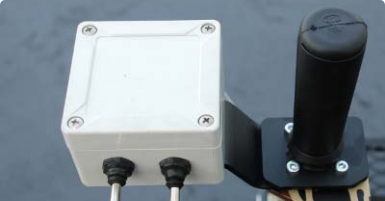Most people take their mobility for granted, but when something that’s a part of our everyday lives is taken away, it’s hard to keep a positive mindset and it’s not uncommon for depression to kick in. After all, what was once an easy task is now something that requires great effort. It’s not only the person affected by the mobility loss that struggles, but also the loved ones who feel it.
This feeling is completely normal.
However, while learning how to navigate the world in this new way is important, another priority is getting a strong hold on your mental health.
Mental health tips for you or your loved ones
Share the load:
Whether you or a loved one is grappling with new mobility issues, it’s important to foster teamwork. Make sure the person facing mobility challenges feels assured that there is always someone to lean on. Often, the reluctance to burden others can lead to feelings of isolation and overwhelm. By working together and sharing responsibilities, you can alleviate these emotions.
Find community resources:
Explore the wealth of programs and services in your community designed to support those with mobility issues. You’ll be surprised how much support there is if you do a bit of digging. Engaging with these resources not only allows you to meet others facing similar challenges but also provides a deeper understanding of the available assistance. Building connections within your community can offer valuable support. If you’re a loved one, you will find a lot of support through the community as well as resources to help you cope.
Talk to a professional:
While talking to family and friends is important, it’s sometimes good to talk to someone in a more professional setting. Speaking with a psychologist or psychiatrist or reaching out to an occupational therapist will not only help you with new routines, but also help with your mental load.
Stay social:
As social beings, we derive significant benefits from interaction with others. It’s common to withdraw when feeling depressed, but nurturing social connections is crucial for mental health. Online communities provide an avenue for socialising from the comfort of your home, connecting not only with professionals but also with others navigating similar challenges. However, supplementing online interactions with face-to-face connections is important.
Find tools to make life easier:
There are so many kinds of mobility aids available, ranging from modifications that can be installed around your home, to mobility scooters, wheelchairs, and even wheelchairs for those who love the outdoors. Don’t be afraid to get as many things as possible to make it easier for you to get around.
Facing an unexpected loss of mobility can stir up emotions like depression, loneliness, and anxiety, potentially deepening the sense of isolation. It’s important to acknowledge that these feelings are a natural response. Opening up to loved ones, seeking professional advice, and discovering the right wheelchair and tools to simplify your life can be transformative. As you cultivate a strong support network, you’ll gradually rediscover a sense of self again.
The Action Trackchair is the ultimate offroad 4×4 wheelchair for Australian conditions with a range of benefits for the user. The biggest benefit is by far the positive it has on the user’s mental wellbeing. It promotes socialness, movement, and a greater feeling of freedom. So, whether you’re exploring the outdoors, connecting with others, or enjoying the simple pleasure of moving around, the Action Trackchair is more than a mobility aid – it’s your key to more freedom.





